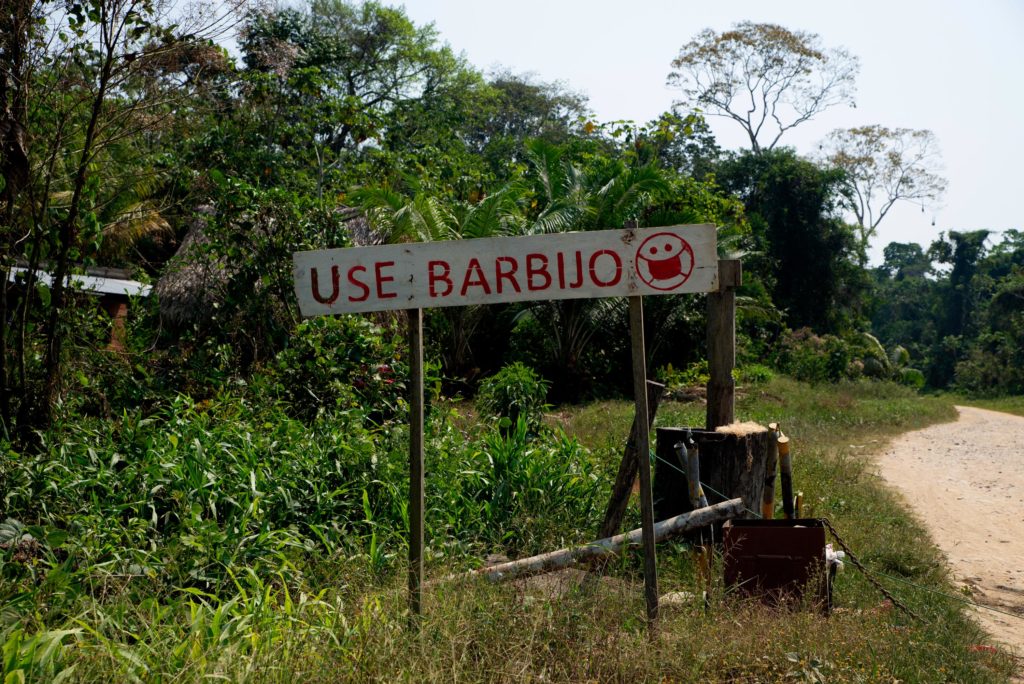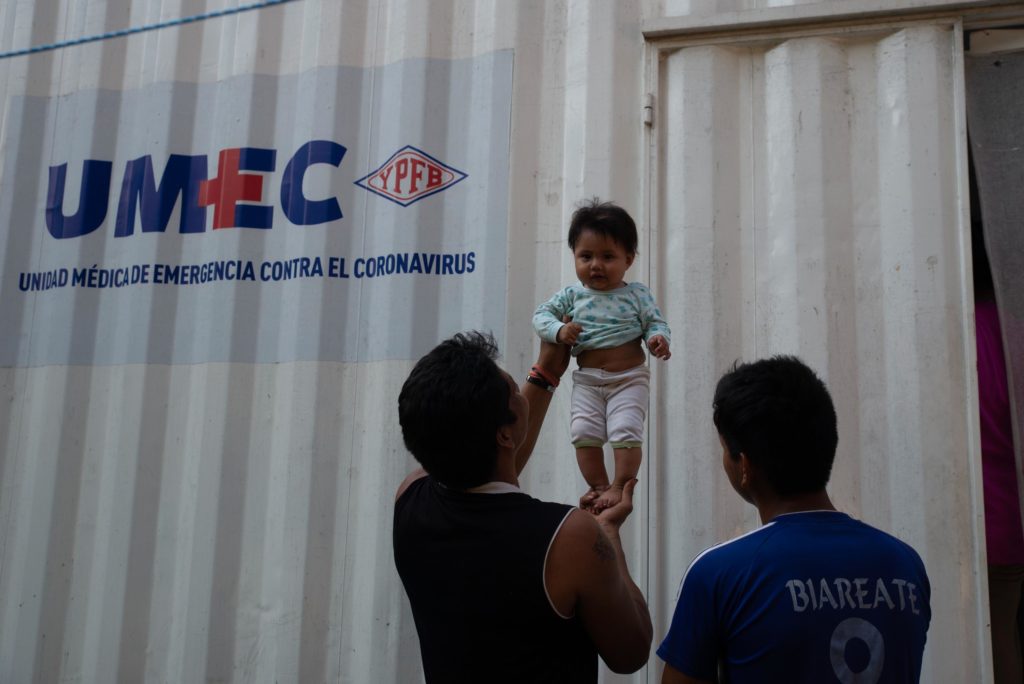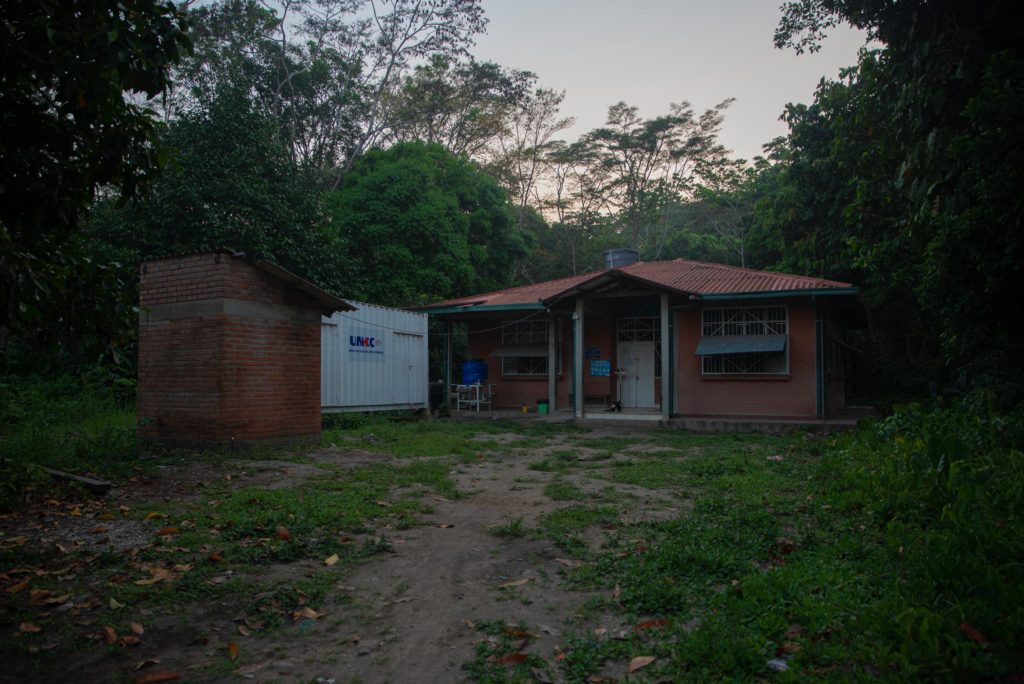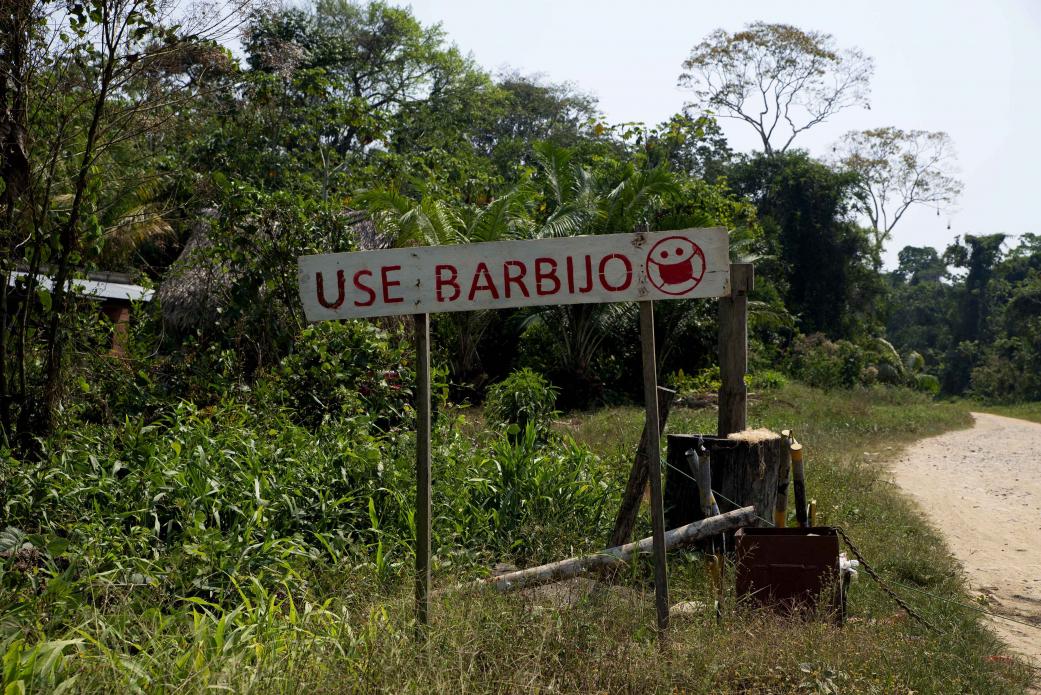
We visited a community in the Bolivian Amazon considered highly vulnerable. In the middle of the pandemic, the Yuqui, with only 360 people, are alert. United for the same purpose, to survive, preserve their culture and identity - and at the same time, their health status is seriously affected and their territory threatened by illegal actions such as deforestation.
Entering the community of Bia Recuaté, where the Yuqui people live, you cross trails and narrow roads. It is where you begin to feel the humid smell of the Amazon rainforest and as you travel through several kilometers of nature, it is perceived that time does not exist. This same forest has witnessed the struggle for survival of the indigenous people of the Yuquis, who care for it and have generated such a deep connection with the flora and fauna that surround them. Since the period of the first contacts in the 1960s, the inhabitants, in an attempt to preserve their identity, adopted in their names and surnames - in their Yuqui language - everything that is part of their ecosystem, such as flowers, fruits and the animals.
The Yuqui people live mainly in the Bia Recuaté community, in the Chapare province, known as the main region to produce the coca leaf in Bolivia. Coca is mostly destined for illegal production, linked to drug trafficking, according to official figures from the United Nations Office on Drugs and Crime (UNODC) and the Plurinational State of Bolivia.
The community is located about 260 kilometers from the city of Cochabamba. You enter through the Broken Bridge, passing through several towns inhabited by settlers, who migrated from other parts of Bolivia. It is a territory where at least three different indigenous peoples coexist: the Yuquis, the Yuracarés, and the Trinitarios.
The territory is officially named “TCO Yuqui-CIRI”, TCO meaning Community Land of Origin - now called TIOC - Peasant Native Indigenous Territory.
There are 298 TCOs or now TIOCs in Bolivia, and they represent approximately 25% of the Bolivian Amazon. TIOCs are territories destined for indigenous peoples, and their main characteristic is the collective right over the territory as opposed to individual properties. These areas are recognized by the Political Constitution of the Plurinational State of Bolivia.
The Yuqui-CIRI TCO consists of 125,000 hectares in total. It may sound like a lot to a few thousand indigenous people, but the idea is that they can continue to preserve their culture and way of life as hunters and gatherers - just as they have done for hundreds of years.
The new enemy that lurks
The Yuqui people are one of the smallest indigenous peoples in Bolivia with only 360 inhabitants. According to anthropologists and the Bolivian lowland indigenous organization CIDOB, the Yuqui people are considered highly vulnerable and in the category of Initial Contact.
We meet Carmen Isategua "chief chief", who is the highest authority of the community. 35 years old with a worried face, he tells us with a faint look how Covid-19 made the community sick:
"But we have not died because we are strong," says Carmen Isategua.


The Yuquis fight head-on and fear no one, not even death. Be it the fight against invaders, or against outside diseases such as tuberculosis or Covid-19.
According to official data from the Secretary of Health of Bia Recuaté Leandro Quispe, until the end of October, there have been 19 positive cases of Covid-19 and one death in the community. The threat of Covid-19 has come to worry even the Inter-American Commission on Human Rights (IACHR), which in June warned through its official Twitter account that the Yuqui people are at “serious risk” due to the pandemic “which could represent a serious risk for the survival of the indigenous people. "

The whole family accompanying the sick at the hospital
Carmen tells us that when a Yuqui family member is admitted to a hospital outside the community, they have the custom of being next to the sick person until they are discharged.
She is upset by the misunderstanding of the Abba (in the Yuqui language means person outside the community), and the health professionals who do not let them stay with the sick.
“ When we get sick, no one goes, the whole family goes to watch over him because that is our custom. Instead, the Abba get sick and leave it to their relatives. We are not like that. They get sick and we chase them. We look at what they are doing, we follow up on them, we are next to them," he tells us with a firm and protestant tone.

During our visit to the Yuqui community, we observed how the essence of the nomadic people is still intact today. It is almost impossible to know where a Yuqui will be tomorrow, as they are free and do not follow city logic. For example, in Bia Recuaté, time seems to have a different rhythm and another type of planning.

Death - a collective affair
The Yuquis have a collective and profound vision of death compared to urban society. That is why the death of a person becomes a collective penalty that involves the entire community. As a show of respect and pain for the mourning, they may stop eating for days.
“It is sad to remember - very painful. A brother that we lose here - is like losing a hundred Yuquis,” tells Don Jhonathan Isategua, 52, a former chief of the community.
For the Yuqui people, the arrival of the new disease, Covid-19, caused a lot of fear at first. Similar to the case for many indigenous peoples in the Amazon, the Yuquis used the strategy of voluntary isolation, that is, avoiding contact with outsiders.
While it protected them from the risk of infection, it also led to a food crisis for the Yuquis.




By isolating, the leaders could not go out to buy food, which is commonly distributed to the residents. As a result, they were unable to feed properly, further weakening their already vulnerable state of health.
Before the arrival of Covid-19, the indigenous people were already suffering from different basic diseases, which put their health status in an extremely vulnerable position in the face of Covid-19.
The community already has several cases of tuberculosis, as well as many suffering from anemia and mycosis.

Fighting for the light
Although the community currently preserves the traditions of hunting, fishing, and gathering fruits, they also supplement their diet with other things. But, there is a problem. With the immense heat in the jungle, it would be necessary to be able to cool the food, in order to preserve it. Yet, Bia Recuaté does not have electricity.
The only "intermittent" connection point for electricity and internet is in a small corridor of a classroom at the school, through an electrical extension cord with three plugs. Some residents who have a cell phone and health personnel come to the place to charge their electronic devices and try to capture a little telephone signal, which is very scarce.
This situation has generated different versions and points of view regarding access to this basic service, electricity. Some community members - mostly young people - state that this resource is very important and necessary. On the other hand, as an authority, the chief chief states that accessing electricity would affect the economy of families that do not have the resources to pay monthly bills, as a result of the freezing of their resources from the Management Plan.
The community health professional points out that a more important issue than electricity is drinking water:
“Although they have water from the Chimoré river, it only serves to bathe and wash clothes,” says doctor Gimena Torrico.
The river is polluted due to sewage from neighboring towns, and by drinking the water the Yuqui population risks contracting various stomach diseases.

Territory threatened by neighbors and illegal activities
Being part of the same Amazonian territory, the Yuqui people and the Yuracaré people share forest resources from their TCO Yuqui-CIRI.
The use of TCO resources has been planned in a sustainable and responsible way. With the support of USAID (the United States Agency for Development), forestry engineers and the Indigenous Forest Organization (OIF) Yagua Samu are specifically in charge of administering the management plan and forest census to preserve the balance of the forest, calculating which trees can be cut down, and which ones should not be touched.

The Management Plan is also monitored in collaboration with the Bolivian land and forest oversight and social control authority (ABT). But, currently this management plan is frozen as a result of several disagreements and conflicts between the two indigenous peoples over reports of illegal coca, drug trafficking, and illegal logging.
The former cacique explains about his town's complaint: “They work illegal things. We have put up a control bar and we have seized packages of coca (cocaine). We have a lot of problems with that. We do not want illegal things within our territory. They also have an illegal track for these things. That is not our culture. Our culture is to hunt and live within the territory to take care of it, because we live here. We are fighting for that,” says Jhonathan Isategua.
But the authorities also confirmed the presence of drug trafficking that the Yuqui people denounced. In August 2020, the Mobile Rural Patrol Unit (Umopar), together with the then Minister of Government, Arturo Murillo, discovered a clandestine track that had been used for the transfer of drugs produced in a laboratory located in the same area. According to the local press, she was protected by "a lieutenant of Evo Morales." At the same time, the Minister denounced the indiscriminate felling that had been carried out for the construction of the runway.



Los Yuquis - an example of resistance
All of this has led to an emergency situation for the Yuquis, since areas such as health, education and boarding school depend on income from the Management Plan. For example, with resources from the Management Plan, they finance the orphanage where they house 35 boys and girls who were orphaned after being hit by a tuberculosis epidemic.

At the beginning of the pandemic, the Yuquis had to buy their own medicines to be able to fight the disease due to the late intervention from government authorities.
The pandemic was just the latest in a long series of threats to this small indigenous town in the Bolivian Amazon. The Yuquis feel glorious for having resisted so many trials that civilization has given them. They are an example of struggle and resistance. Despite being a small indigenous town, their strength and indomitable spirit are evident.

They face fiercely against many extractivist interests such as the illegal logging of trees, which are the home of many beings and even the inspiration of the community to carry their surnames from the flora and fauna of the jungle that surrounds them. That is their way of resisting and continuing to preserve their legacy. The Yuquis are still on foot and continue to lose themselves in the forest from one moment to the next. They keep dreaming about a tomorrow next to their forest that is as much a part of them, as they are a part of it.








